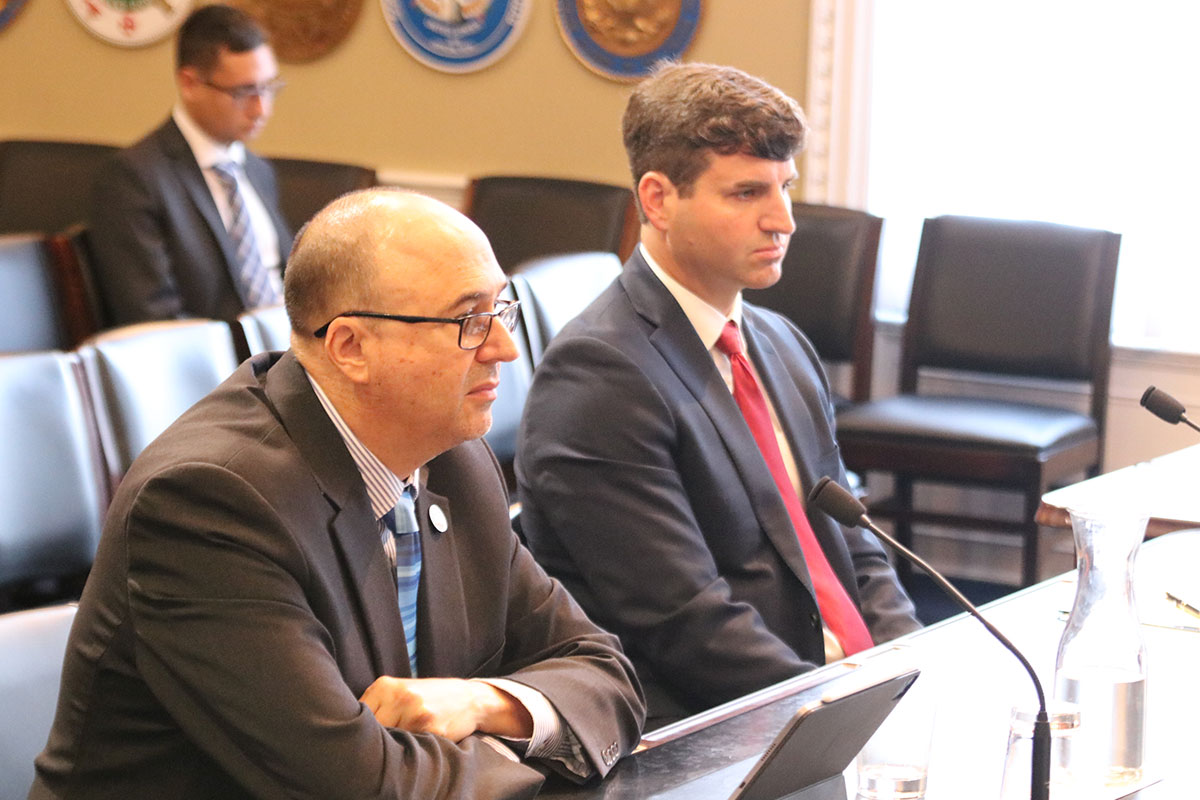
Speaking before a congressional subcommittee Tuesday morning in Washington, D.C., Texas A&M University scientist Andrew Dessler provided expert testimony on climate science as lawmakers discussed climate change and public land use policy in the United States.
“Science is only valuable to society when it gets integrated into the policymaking process,” said Dessler, holder of the Reta A. Haynes Chair in the Department of Atmospheric Sciences and director of the Texas Center for Climate Studies. “It really doesn’t matter if we do the greatest science in the world if we don’t tell policymakers about it. This is a crucial part of science. This is where rubber meets the road.”
As an invited witness to the House Natural Resource Committee Subcommittee on Energy and Mineral Resources*, Dessler was asked to testify during a hybrid legislative hearing on H.R. 8802, the Public Lands and Waters Climate Leadership Act of 2022. According to the subcommittee, the proposed bill would require the Secretary of the Interior and the Chief of the Forest Service to align management of public lands and waters with President Biden’s greenhouse gas emission reduction goals.
In his prepared remarks, Dessler explained the basics of climate change science, the potential future scenarios facing the U.S. and why wind and solar energy are key tools in reducing the future impacts of climate change.
“First, the climate is warming,” he testified. “Second, the scientific community’s best estimate is that all of this warming is caused by human activities, mainly from the combustion of fossil fuels. Third, we are on track to warm the planet in 2100 by about 5 degrees Fahrenheit above the Earth’s temperature in the 19th century. For the global average, this is a huge amount of warming. The 2 degrees of warming we have already experienced over the past 150 years is already turbo-charging severe weather events and turning them into catastrophes.”
Communicating scientific concepts and data to policymakers has long been a part of Dessler’s outlook on science and public service. In 2000, he served as the senior policy analyst in the White House Office of Science and Technology Policy. Since then, he has continued to study climate policy and provide expertise to decision makers, state and federal legislative bodies, and the public. Following Tuesday’s hearing, Dessler reflected on his decades of experience in climate policy and the positive changes he’s seen.
“Twenty years ago, we were debating whether the climate was changing, and 10 years ago we were debating whether humans were causing it, and now those debates are really over, and we’re debating what we can do about it — and I think that’s a positive sign.”
Dessler holds that the decreasing price of wind and solar energy could allow the U.S. to build a largely carbon-free grid by the mid-2030s “that produces power at prices lower than we pay today.”
“We are on the brink of potentially calamitous climate impacts,” he testified to the committee. “However, we also have the tools to solve the problem. The only question is which of these paths we choose.”
Watch the entire subcommittee hearing.
*this link is no longer active and has been removed.

